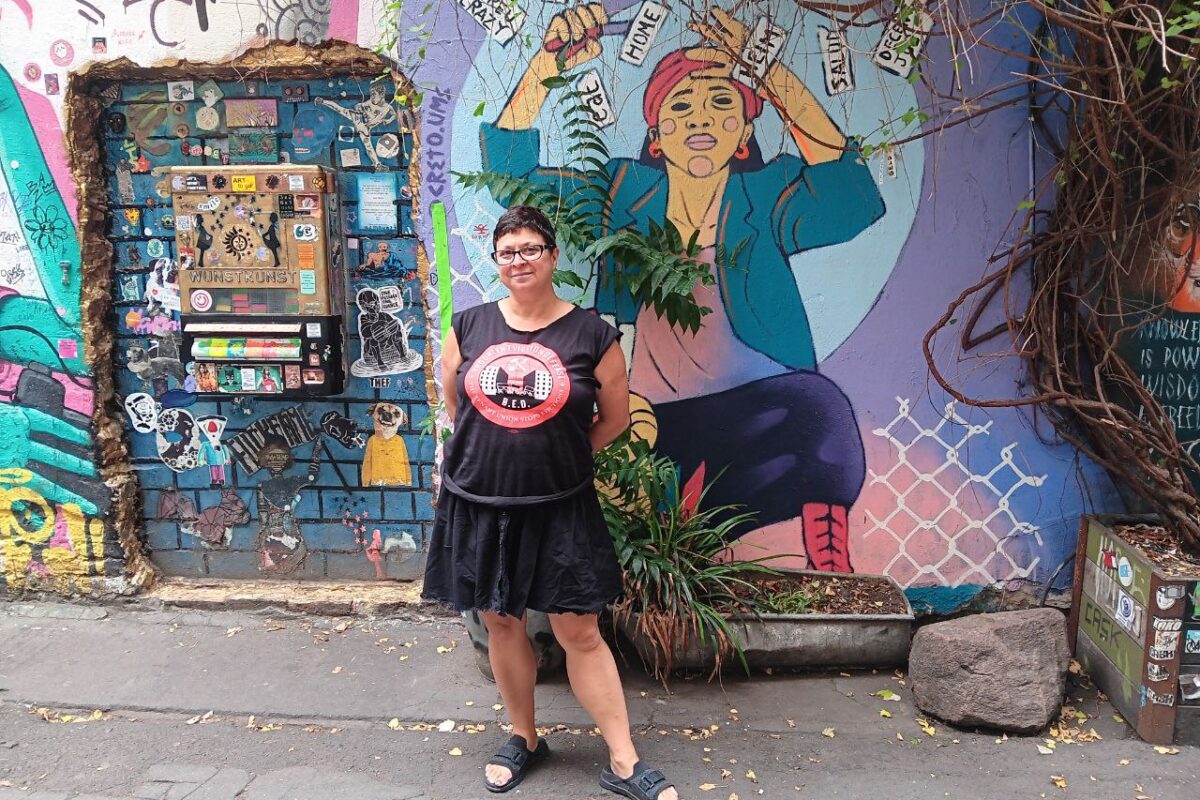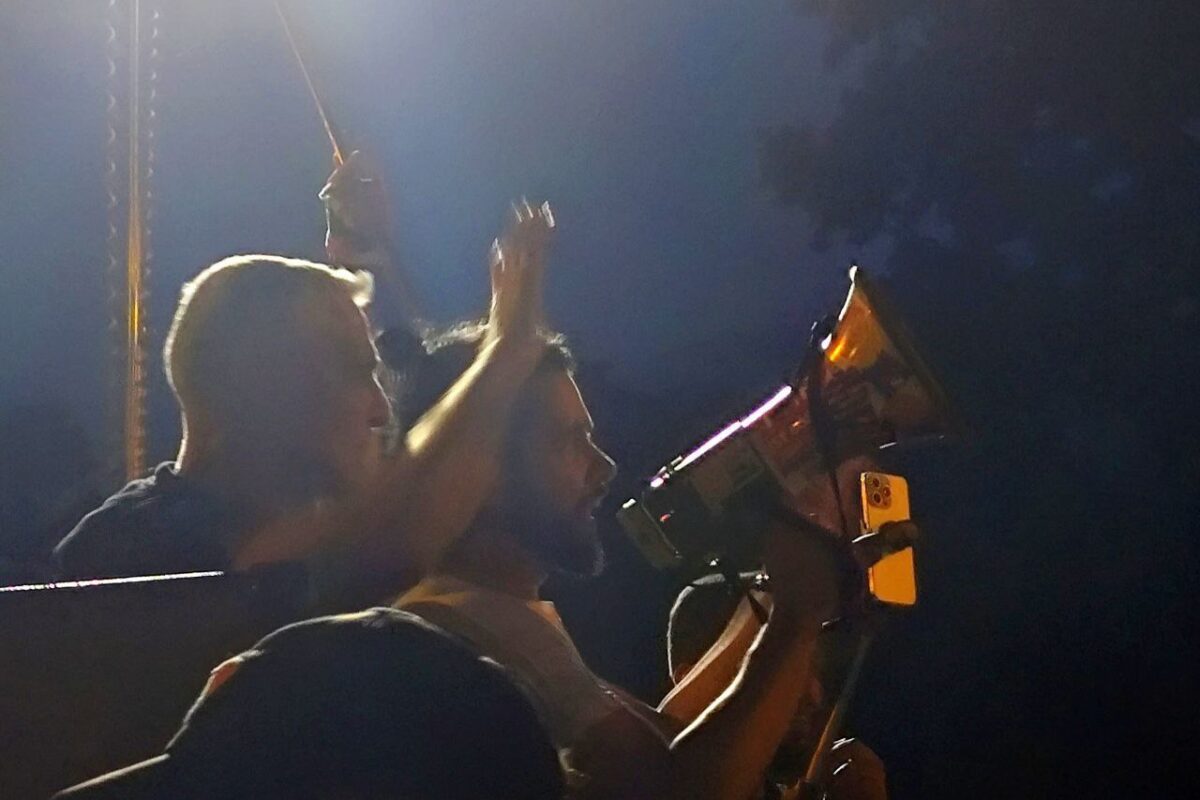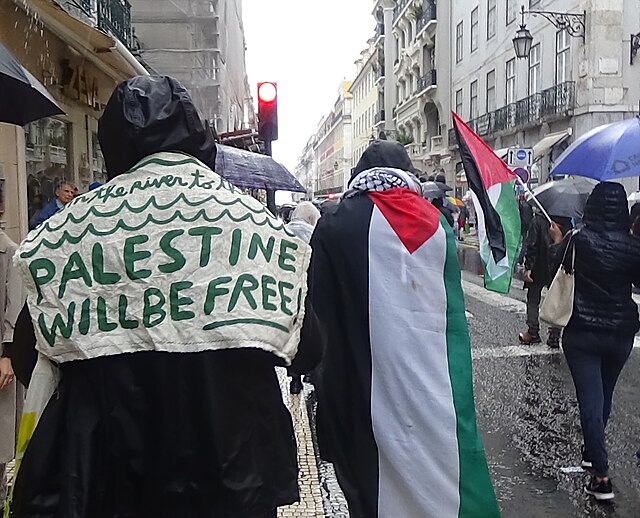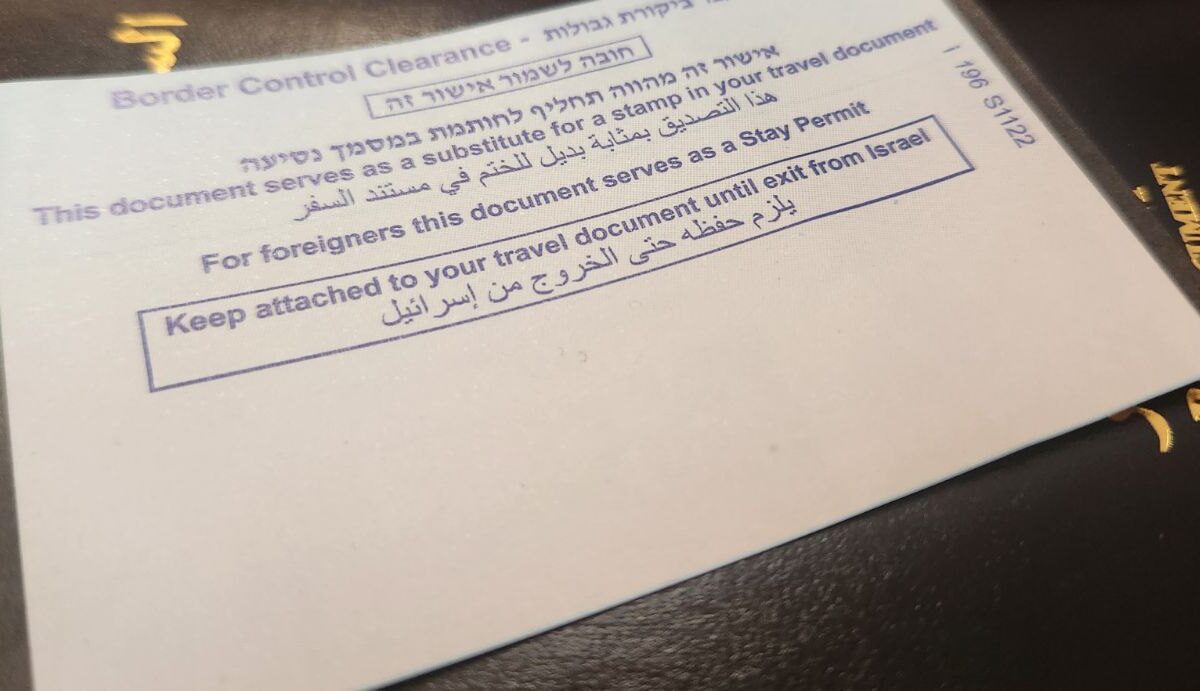Hello Linda. Could you start by introducing yourself?
I’m Linda Holmes. I am a lifelong New Yorker, and I live in Brooklyn. I professionally represent tenants in court, preventing evictions and bringing cases against the landlord about necessary repairs.
Outside of my work, I work with New York City Democratic Socialists of America (DSA) in their tenant organizing work. We are working to have a city wide tenant’s group and setting up local groups in different parts of New York. I live in Flatbush, Brooklyn, and we have a DSA chapter there.
I also work with a couple of autonomous tenant unions which don’t have any paid staff. I do trainings, give advice and do some organizing. One group I work with is Brooklyn Eviction Defense, and I’m wearing their t-shirt today (see cover photo).
Can you say something about the state of renting in Brooklyn at the moment? Has it changed in the last few years?
There’s a constant pressure of rising rents and displacement. New York has rent stabilization, which means that there are limits on how much rents can be increased for some. But rules for protected tenants have been increasingly cut back, and fewer and fewer tenants are protected by rent stabilization.
There is a movement called Good Cause Eviction, which is trying to limit how much landlords can raise the rent for tenants who are not protected by rent stabilization. We fought for five years, and have just succeeded. In April, we won Good Cause Eviction to cover more tenants.
But there are a lot of exceptions to this new rule. Many tenants are still not covered. A lot of exceptions for smaller landlords were built into the law.
Brooklyn used to be known as the part of New York for people who couldn’t afford to live in Manhattan. Who lives in Brooklyn at the moment?
I was born and raised in Manhattan. I’m now 54 years old. When I was growing up, Manhattan was by far the most expensive, and, if you couldn’t afford to live in Manhattan, you would live in one of the outer boroughs: Brooklyn, Queens, Bronx, or Staten Island. In my lifetime, Brooklyn has completely exploded, and rents have increased dramatically.
There has been decades of pressure to displace older tenants, poorer tenants, tenants who are Black and Brown, tenants who are immigrants. There’s been immense displacement pressures around long standing tenants, and it really varies by neighborhood.
Brooklyn is an enormous borough. It has neighborhoods like Williamsburg, which has insane, hyper gentrification. And on the other side, neighborhoods like Brownsville and East New York, where the gentrification pressures were not as significant. These neighborhoods remain relatively poor. They also experience displacement and rent increases, but not as great.
I live in Flatbush, which is somewhere in between. Flatbush is a very interesting neighborhood. It is where Bernie Sanders came from. In the time when Bernie was growing up, it was predominantly a Jewish-American neighborhood. In the 50s, 60s, and 70s, a lot of people came from the Caribbean, and so there is a strong Caribbean-Haitian-Jamaican influence.
In the 2000s a lot of young, new renters came to Flatbush because they couldn’t afford other places, so there is pressure to move out the older Caribbean neighbors. Landlords want to rent to people who can pay more money.
How much do you think there’s a racial element to the evictions? Is it simply that Black and Brown people tend to be poorer, or is it more than that?
I think it is a bit of both. If you own an apartment building, the more white tenants you have, the more white tenants you are going to attract. So social racism plays a role.
Most landlords don’t really care who is living in the building. It’s really about the money. They want to charge the highest rents. But the money is tied to larger issues of class and race in New York and in Brooklyn. It’s pretty intense.
We’ve talked about the bad things. What are you doing to try and change them for the better?
I have been doing a series of tenant trainings, because a lot of tenants are covered by rent stabilization, but not told about the new laws. Many do not understand the importance of these protections. Rent stabilization means that the rent can only be raised a certain amount, and landlords are required to offer a renewal lease.
A lot of tenants are afraid that if they complain, they will be evicted. We explain how a landlord cannot just raise your rent to any amount if you complain, or if they don’t like you, or if they just want more money.
We also explain how to make complaints, which is a very complicated process in New York City. We have a single phone number to call for all city services, whether it’s a parking ticket or a leak in your roof. If you want to complain that there’s garbage or rats, or even if a street light is out, there’s one number. And they do keep records of what’s happening, which is also good.
But once a complaint has been made, there are problems. An inspector is sent out either from the buildings or the housing tenant agency. If the inspector comes and nobody happens to be there because there’s no appointment, the case is closed, and that’s the end of it. That’s problem one.
Problem two is that inspectors are not very well paid, and there’s been a lot of turnover. We are living in New York City under an austerity mayor. We have been fighting budget cutbacks in every area. There are big fights around cutting back libraries and schools, but there is not such a big fight around cutting back the agencies that do these inspections. And the inspections are only a small part of what the agencies do. So even funding the agency wouldn’t necessarily result in more inspections.
This means that sometimes the inspector isn’t very well prepared to find out what all the problems are in an apartment, or even to address the problems that the tenant has called about. There’s a disconnect there between the complaints and the actual finding of violations.
Landlords also sometimes pay off inspectors because their salaries are not very good. That’s a third problem. And a fourth problem comes when a violation is issued. There is no real punishment for that. There are technically fines, but the city does not collect them. I cannot explain why.
If a tenant wants to take the next step, they can go to court. If you are successful in your court case, the court will order the landlord to make repairs. But landlords ignore the court order because there is no fine, and you have to go back to court again and say the landlord is in contempt for failing to make these repairs.
One thing you can do is withhold your rent and ask for the court to find that you are not required to pay the entire amount based on the conditions In the apartment. Even then, the penalties are often insufficient if you win, which means you have a trial, days of court that you have to take off from work if you win, and what is called an abatement where you don’t have to pay all of the rent.
But even if you have no hot water, this is not sufficient for a full abatement. You still will have to pay some of your rent. To me, you should not have to pay any rent if you have no heat and no hot water.
Who is organizing the help for tenants going through this horrible process? Is it just individual lawyers, or is there some sort of organization behind it?
There are a number of nonprofits in New York City that have done this work for decades, primarily preventing evictions. Getting repairs made can be unfulfilling, as it’s a great deal of effort for very little reward, and we are paid by the city for each case we do. This means that the organization I work for has an interest in successful results that aren’t that time consuming. There is constant pressure on the funding in New York City.
A few years ago, the city passed a law saying that everyone should get a lawyer, but then they didn’t fund it sufficiently. And then the pandemic happened, which had a gigantic effect in New York. We had an eviction moratorium for years where there were no evictions at all. So there wasn’t a lot of need for the law at first. But then there was a flood of eviction cases.
There is also a tenant organizing movement in NYC that has been gaining strength. Tenants are learning to work together to help support one another and develop a sense of solidarity against their common nemesis: the landlord. NYC has a rich tradition of tenant organizing dating back over a hundred years. But, there was a period that tenant organizing was not nearly as strong as it should have been. The last 5-10 years has seen an incredible surge of interest in tenant organizing and developing tenant power.
So it sounds like winning legal arguments is only a small part of what you’re having to do. You’re also having to put pressure on governments.
When I started, there were maybe 100-200 attorneys in the city who did the work I do. Now, I’m guessing it’s probably 10 times that. There’s been a substantial increase, which is good, but the bulk of the work that we do actually relates to a different problem.
In New York City, our welfare system provides an extremely minimal amount of funding for housing. So if you are eligible for welfare, you get $450 for a family of four people. That’s insane, and that amount hasn’t changed in 30 years. Twenty years ago, my organization started a lawsuit, and the upshot of it is that if you are facing eviction, you can get a higher amount, but only if you’re facing eviction.
So you can’t just start looking for an apartment. You have to have an apartment that you’re going to lose. This means that at least 50% of the work that we do is trying to get the money from the welfare system to pay for people’s arrears and to sometimes help them get continued money in the future.
What’s your relationship to social movements which might be making similar demands from a non-legal perspective?
There are limits on what my organization can do in terms of their advocacy. My organization does advocate for improvements to tenant protections, but I think for the most part, they’re just not aligned with social movements.
Most of my coworkers have a very high caseload, and it’s very traumatic because our work is almost entirely with families who are facing eviction. We are constantly talking with families who are frightened they are going to lose their home. That is the bulk of our work. For many people, it’s all they can handle to be doing their day job.
For me, I couldn’t do it any longer if I wasn’t engaged in trying to figure out how it could be different and better.
In your spare time, you’re a member of the DSA. In Europe, we haven’t heard much from the DSA in the last couple of years. How is the DSA doing, and what’s its contribution to the housing movements?
I can’t speak at all for the national DSA, but I’m pretty involved with it here in New York City, and I’m very involved with my local chapter. In New York City, the DSA has been an important part of the coalition that started doing a bunch of legislative work around making rent stabilization stronger, getting the Good Cause Eviction passed, and the right to an attorney.
Probably everywhere and in every social movement, there is a disconnect between the people who do work on the ground and those who are doing larger legislative advocacy. That has been a real struggle in the New York City DSA for a few years now, where folks who are engaged in tenant organizing on the ground are more aligned with abolition of private property and landlords. They are activists, and are therefore critical of some of the compromises that folks who are working on the policy side feel like they have to make.
Do you think that the coming election is going to affect housing rights in the States and in Brooklyn?
One of the very interesting things is that, right before Biden decided not to run again, he sort of proposed the possibility of starting to have some nationwide rent controls. To me, Brooklyn is the harbinger of what has now happened nationwide. There is a problem of homelessness and a lack of affordable housing, so people are paying such a substantial portion of their income on rent.
Kamala Harris has re-enunciated that she is in support of rent control, but is it going to happen? I don’t know, but if we have a President Trump again, it is definitely not going to be on the table. It is not insignificant that Trump is a New York City landlord and comes from a New York City landlord family.
In really important ways, the landlords in New York City think that private property is freedom to do whatever you want. But in actuality, Donald Trump, like any other landlord, benefited immensely from government contracts and the basic things that a state provides: sewage and roads and so forth.
He also specifically benefited from state permissions to have housing and to build housing. It’s connections with people in the state that make it possible to do those things. So deep down, Donald Trump knows that it’s very important to have the state support for the money he wants to make.
Is there anything else we haven’t covered that you want to tell our readers?
I was very excited to hear about the potential of expropriation in Berlin, and I think more and more that we have to be talking about expropriation in America, and especially in New York City. Sometimes I am surprised that even conservative people will agree that if a landlord is not doing a good job, the building shouldn’t be in their possession anymore.
In New York City and nationwide, we must be discussing different forms of ownership, like community land trusts. This means that the property is owned in common, and there is a limit on how much any individual can profit from leaving their apartment if they want somebody else to have it.
This expands a little bit the idea of how private property can be organized. It is so painful to me in the United States that the hope that private property will gain more value is the stopgap against our lack of a social welfare system. If you don’t have private property, you can’t pay for your children’s college, or your retirement, or health care that isn’t covered by your insurance.
These are things which wouldn’t be as great a concern in a different society. I am hoping that someday we may realize the dream of having such a society in the United States and in New York especially, because I’m devoted to New York.




